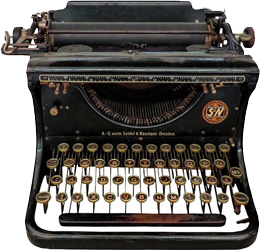
March 29 – Today’s second session was The Thriller Panel, consisting of Eileen Rendahl (moderator), Mike Befeler, Puja Guha, Glen Erik Hamilton, and S.J. Rozan (from left to right above). Questions focused on story setting, character vs. plot and which comes first, taking liberties with the intersection of fact and fiction, the difference between a mystery and a thriller, and the difference between noir and thrillers. This was a particularly good panel discussion.
Mike
- Historical accuracy, fictional things about Nicolas Tesla
- Setting is the key to what happens in the book, most of the story takes place in Colorado Springs, CO setting
- Character is essential in The Tesla Legacy
- When talking about the intersection of fact and fiction, there is no evidence that character caused something, but no evidence that the character didn’t do it
- Often thrillers are world-impacting, stakes are huge
Puja
- Travels extensively for her day job, uses those settings in her books
- Believes audiences are more open to unknown places, more willing to read about them
- Independently published
- Writing about what speaks to you is essential for building a good story
- Can’t imagine any good story that doesn’t have character development
- Thinks about plot maybe 30 seconds ahead of character
- Her books take place in the near future, so she manipulates what happens a bit
- She tries to build social issues into the plot (some wish fulfillment involved? – maybe)
- You may know James Bond is going to live, but the people he cares about may not survive
Glen
- Will teach a class, “Your Setting is Your Hook,” at ThrillerFest this summer
- Setting makes a place easy to visit for the reader
- Character almost always comes first
- Might know where the big twists in the plot are going to be but usually begins with character
- Any interesting story has to be character-driven
- In a series, readers want to learn about what happens to the characters they care about next
- Takes fairly realistic situations and people and kicks it up a notch, usually to move the plot along
- Know your genre
- A mystery is what happened, a thriller is how do I keep this from happening
- Sometimes, the mix is what happened and how do I keep it from happening again
- Noir is generally about secrets, or bad decisions of the past preying on current events, or a loser making bad decisions – might lead to a thriller
S.J.
- Setting critical, if you can set the story anywhere it isn’t strong enough
- Setting shapes both story and characters, it begs to be used
- Smell of Hong Kong (“roast duck and diesel fuel”)
- Publishers won’t publish certain settings (ex: Mongolia)
- Has to be character first, then setting (the “world that the book is written in”)
- Develops certain amount of tension between the characters
- No point in telling a story about “chess pieces”
- Uses reality but puts an entirely different lens on it (her paranormal stories)
- Uses length of chapter and where you stop action tricks
- If you have created characters well enough, readers will stick with them no matter what happens
Eileen
- Mystery – a puzzle demanding to be solved
- Thriller – meant to thrill, intensity of emotions
